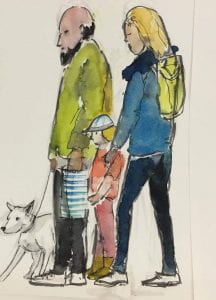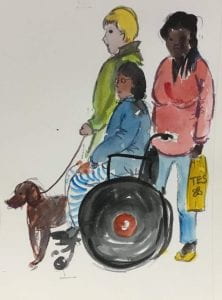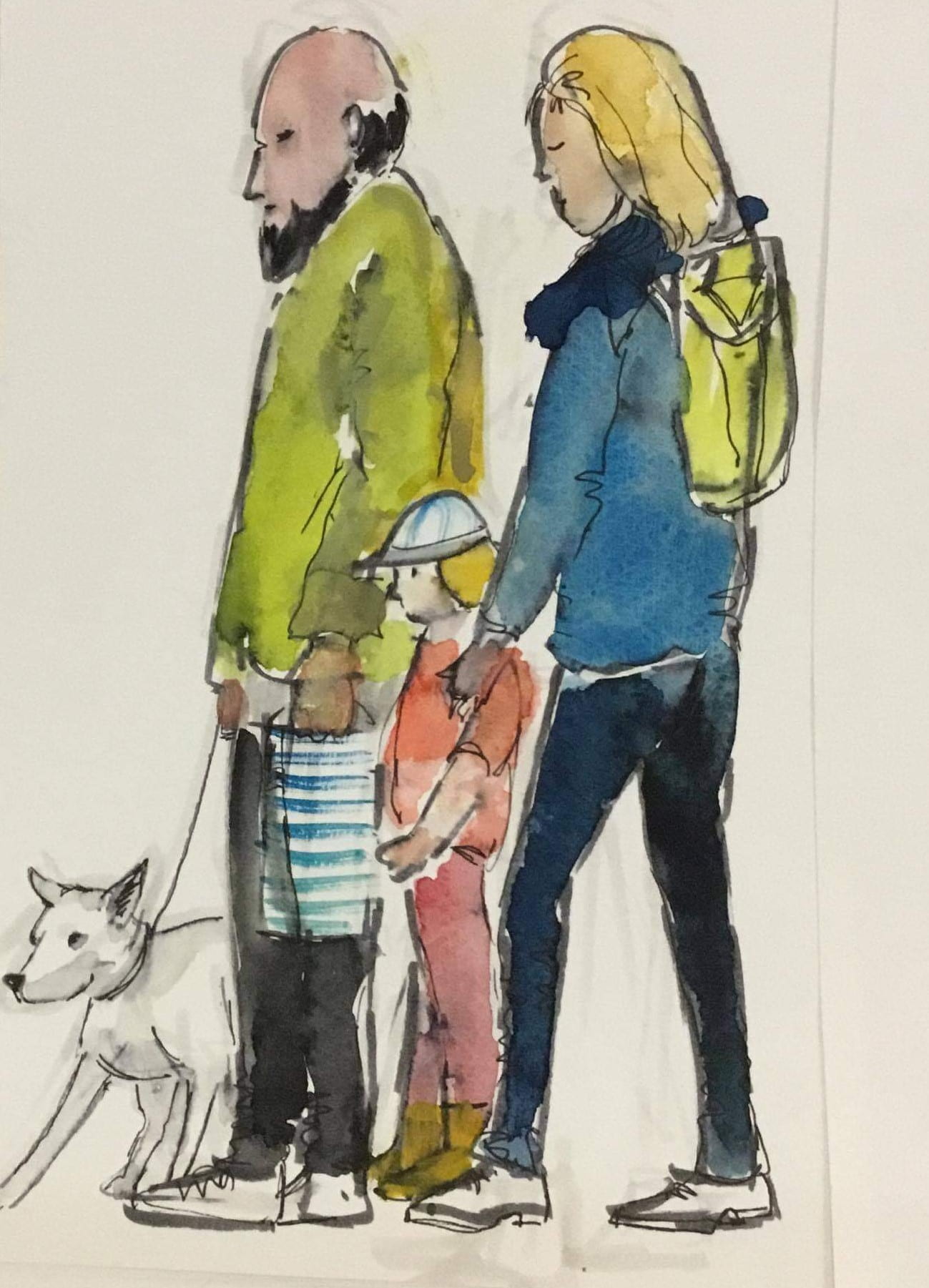— by Maisie Ford
Language is constantly changing. As new words are born or enter a language, old words fall out of use. Linguists have known for a long time that some words endure longer than others. Some core vocabulary, like numbers, names of common animals/plants, and words for parts of the body can be thousands of years old and still in use. This intuition was put to the test by Mark Pagel, Quentin Atkinson, and Andrew Meade in their 2007 paper, Frequency of word-use predicts rates of lexical evolution throughout Indo-European history. Using language corpora (large collections of transcribed speech or collected text), and phylogenetic comparative methods, they found that more frequently used words from the core vocabulary are replaced at a slower rate in European languages.

But why is this? Do often-used words leave a stronger imprint in our minds and are therefore less likely to be lost? Or is it that large scale conceptual or social changes relating to how we think and talk about the world around us are more likely to displace words that are used less often?
VariKin team members Péter Rácz and Sam Passmore (lead authors), Catherine Sheard and Fiona Jordan explored this very question with kinship words in their open-access paper, “Usage frequency and lexical class determine the evolution of kinship terms in Indo-European”, published in Royal Society Open Science in October 2019.
Péter collected large-scale language corpora across 47 Indo-European languages, so as to determine the frequency of use of terms for family and kin. Using phylogenetic comparative methods, Sam modelled how fast kinship words are replaced in these languages. Kinship terms are not just single linguistic labels for individuals, because multiple relatives can be called by the same term such as “cousin” in English, or “tante” (aunt, in French). Kin terms form systems, and multiple terms shift together when one system is replaced with another one through social or cultural changes. VariKin team members explore this aspect in some of their other papers:
- Led by Péter Rácz Social practice and shared history, not social scale, structure cross-cultural complexity in kinship systems
- Led by Sam Passmore No universals in the cultural evolution of kinship terminology
- Led by Catherine Sheard Pama-Nyungan grandparent systems change with grandchildren, but not cross-cousin terms or social norms

In the present paper, the team found that, as with core vocabulary, the most frequently used kinship terms are replaced more slowly over time. In fact, the relationship between rate of replacement and frequency of use was found to be even stronger in kinship terminology than in core vocabulary in general. This is hypothesised to be due to the fact that kinship words, in every language, constitute a closed lexical class, which suggests that the reason more frequent words are more resilient is not that they are more memorable. Rather it is that they are less likely to be affected by complex conceptual changes in language. Terms for ‘mother’ or ‘father’ last for thousands of years!
The findings shed further light on how language change is related to language use. It also adds to what we know about the ways in which evolutionary parallels exist in biology and culture (we know that genes involved in multiple functions change more slowly), and informs debates on dynamics of change in linguistics and complex systems theory in general.
Watch this space for an interview coming soon with Péter Rácz and Sam Passmore in which we discuss this paper further. We will be posting these summaries of papers from the VariKin project over the next few months as the project winds up.
